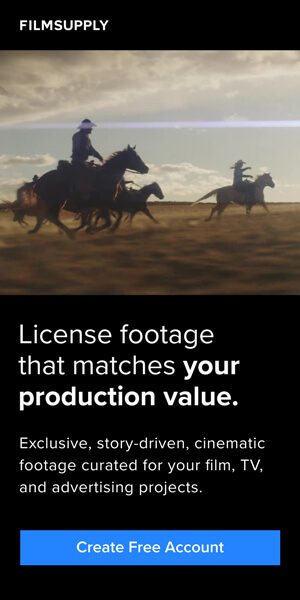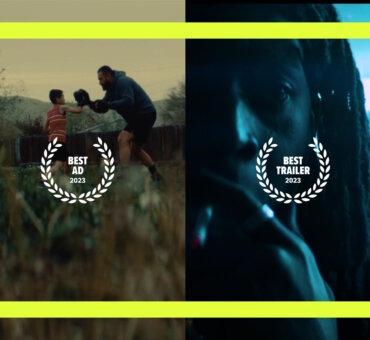A great story can light a fire inside of a filmmaker, but what can you do when the story doesn’t belong to you? Some of the most prolific adaptations of all time — from Georges Méliès’ Cinderella short in 1899, to Luca Guadagnino’s Call Me by Your Name (2017) — required some sort of agreement between the authors who penned the stories and the filmmakers who brought them to life. Contrary to popular belief, when it comes to turning stories into cinematic works, the best ones aren’t reserved solely for filmmakers backed by big-budget studios. Optioning, or the process for securing the rights to make a film out of someone else’s story, is something every filmmaker can pull off with the right know-how.
With a little (translation: a lot of) help from entertainment lawyer Rob Rader, we were able to distill the best way to approach and negotiate with authors whose work you admire. And he ought to know. Rob isn’t just an ally of filmmakers big and small. His extensive history in entertainment reads like a who’s who of industry-shaping studios, startups, and networks. He’s provided legal counsel for many of the digital and media hard-hitters that are running the entertainment game as we know it, including MGM, NBC Universal, Fox, CBS, Disney, and Amazon. Here are the ins and outs of getting your hands on (and keeping everyone else’s hands off) that great story you can’t wait to bring to life.
AVOID THEIR REPRESENTATION, IF AT ALL POSSIBLE
Know thine enemy, friends. “Enemy” may be a tad harsh, but to hear one of their own tell it, the last thing you want to do is reach out to an author’s agent or entertainment lawyer. Rob put it this way, “They may not be your enemy, but they’re not your friend.”
When you’re ready to strike up a deal for a particular property, the person you want to talk to is the author — and only the author if you can swing it. They’re the most likely to respond positively to your excitement about their writing. Contacting their “people” first may seem like the respectable, professional thing to do. But that can really slow down your progress and potentially render the entire project DOA.
It should come as no surprise that a lawyer or agent has dollar signs, as opposed to your vision, at the top of their list of priorities. And it’s hard to blame them. After all, their job is to protect and promote their client’s best interests. But if you keep this in mind while seeking out an option, you can avoid some costly missteps. It won’t be easy though. Authors are artists just like you, and some of them have no clue what’s best for them professionally, or they have no interest in talking business. They could immediately try to pass you along to their reps. In which case, your best move is to try to appeal to the people that published the piece — specifically, someone in the publisher’s Subsidiary Rights department. The people on that team are responsible for all of the property’s licensing rights. They know their publications intimately, and if they know any given story isn’t likely to be optioned by a big-budget studio, they’ll be more likely to work with you to you the rights for the price that won’t break your budget.
START COURTING THE AUTHOR
Tracking down a relatively unknown author isn’t nearly as hard as it used to be. Self-promotion is just as essential to some writers as it is to filmmakers. So they ought to have some sort of website or platform with contact information listed. According to Rob, the most important thing to keep in mind is how you sell yourself and your vision in those initial conversations.
“You want to build a personal connection with the author. The best move is to get them on the phone and say, ‘Look, I’d like to option your property. I don’t necessarily have a lot of money; but I’m super passionate, and I’m super excited about your vision, and I want to make sure your property gets set up the right way.’”
Speak to what excites you about their story. Be specific. Drive home the idea that you want to see their work treated with respect and consideration. After all, if the shoe were on the other foot, you wouldn’t want someone who doesn’t have genuine excitement for your work trying to turn your film into a book.
OPEN YOUR WALLET, BUT MAKE SURE YOU KNOW WHAT YOU’RE PAYING FOR
Nothing comes for free. Not even the rights to a story that you intend to produce as a passion project (meaning, on a shoestring budget). But a fantastic story is an investment in your ultimate success. So get ready to tag a dollar sign onto that notion — or at least a percent sign. Rob spelled out how it works:
“Typically, the author is supposed to get a percentage of the overall budget for the film — generally 2% to 2.5%. But if you don’t know the budget because you’re in development, then you can’t determine what the purchase price is.
So, you pay a small option payment as an advance against the ultimate purchase price. In that instance, it’s all about the value of the writer. If the property is old and out of print, there might not be anyone chasing after it. So you could offer a small symbolic amount, say, $500 or $1,000, just to option the property. But if the story is fresh and the author is on a lot of people’s radars, you could be looking at $5,000 to $10,000.
Later, when you have a budget, you can pay the full purchase price, less what you paid to option the property.”
Ten thousand bucks is by no means chump change. But it helps to know exactly what you’re shelling out for. When you option the rights for a story, you’re the only person who can do anything with it. That means nobody can turn it into a TV show. Nobody can turn it into a theme park attraction. They can’t even name a sandwich after it. It’s yours, and it’s yours for a significant time period. A standard optioning arrangement should give you enough time to cover everything from drafting the script to distributing the finished product.
“The idea is that whatever amount you pay in, you’re supposed to get an option period of an appropriate length in return. Anything under a year is ridiculous. Maybe you could make it work in nine months. But how are you going to develop it, put a commercial screenplay together, attach any actors or a director, and sell it in nine months? You want to create some development materials. You might need longer than you planned to write the script. What you want to do is negotiate for a year up front and an extension year if not longer periods, giving you at least two years to get everything done.”
If you’re prone to stops and starts in your process, you can also negotiate an extension for a portion of what you originally paid. Being in good with the author will, in that instance, help dissuade them from handing off the rights to the next filmmaker who comes along as soon as the option period you’ve paid for runs out.
BE READY TO ADD A NEW NAME TO THE CLOSING CREDITS
Though they may not have any experience with film, authors are still creatives. They also want to ensure their story doesn’t get twisted beyond recognition. So it shouldn’t come as a surprise that many authors want to be involved in the production of the film in some capacity. When asked if it’s common for an author to ask to have a hand in the scripting or in crafting the finished product, Rob has this to say:
“Some of them are hyper involved. I’ve done deals where we optioned someone’s book, and the author wanted some kind of producer credit. That typically includes additional compensation for consulting.”
Offer some sort of title or a role in the process during your initial pitch, and it will show the author you’re willing to look at them as a creative partner. That way, they have some assurances that you don’t intend to totally rewrite their story, and you value their creative input.Tracking, capturing and capitalizing on a fantastic story is by no means easy (or, in some cases, cheap). But growing your career and having the opportunity to work on material that challenges and excites you is what it’s all about.
Be proactive, work strategically and openly, and remember the great value of a piece of creative work. If you approach writers and their work with professionalism and authenticity, you’ll never be at a loss for creative partnerships that further your career and fuel your passion for making great films.






